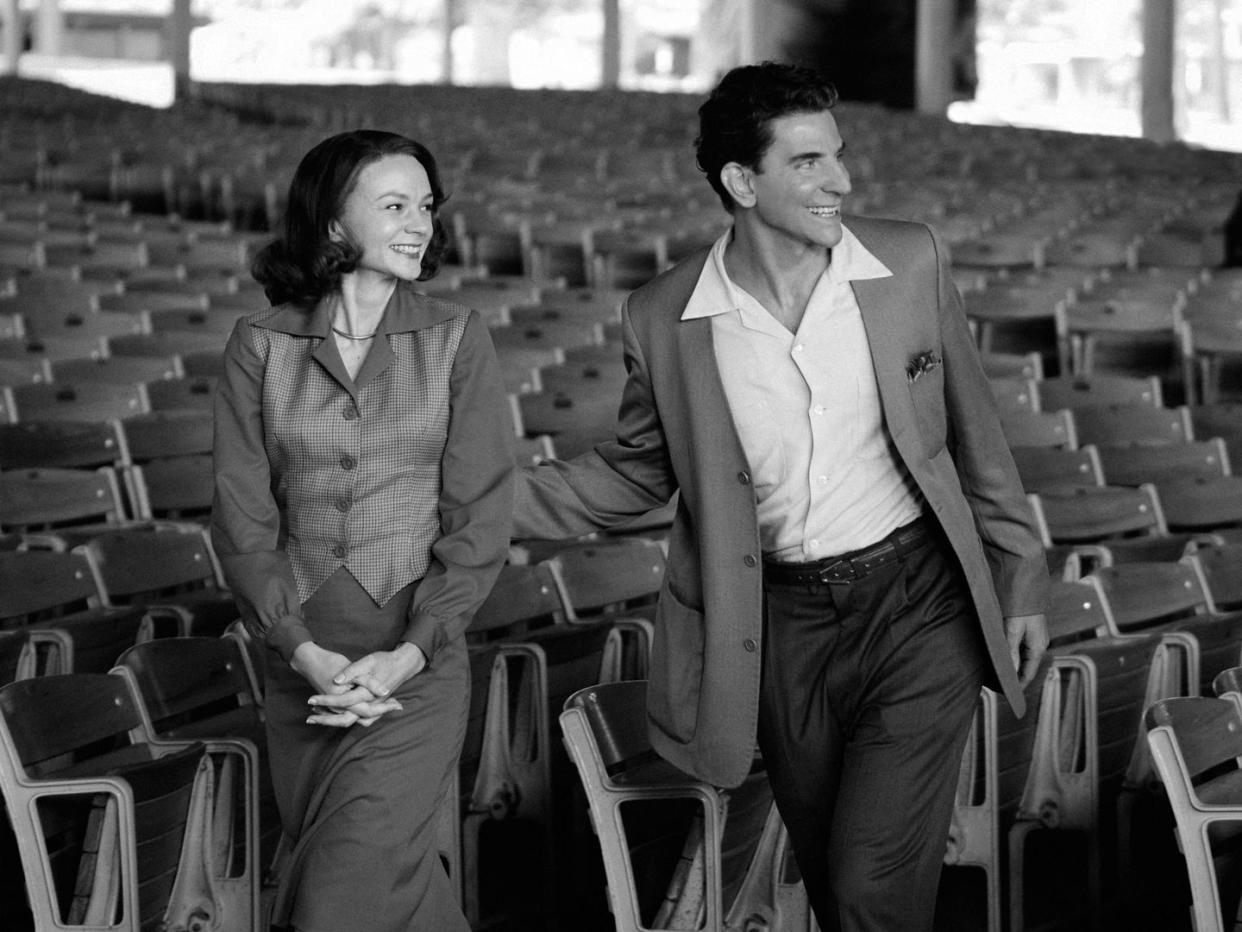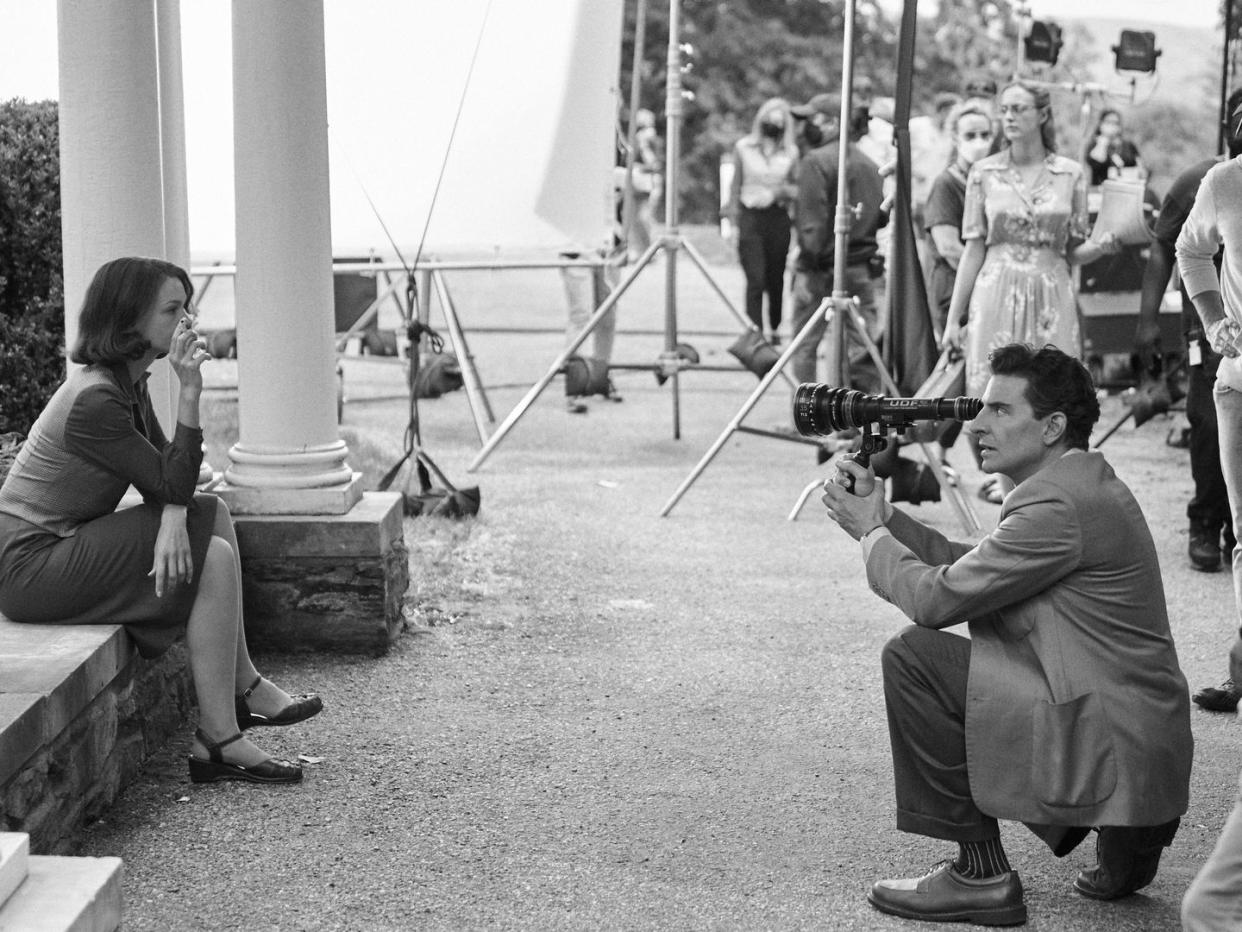Bradley Cooper's fake nose in Maestro has sparked a complicated, but necessary, debate

With the debut of the trailer for Bradley Cooper's new film Maestro, his Leonard Bernstein biopic, came a slew of social-media praise. And, for many, this is welcome. Cooper and his co-star Carey Mulligan are both formidable musical and acting talents – the former proving his mettle with A Star is Born and the latter having starred on Broadway.
Not to mention Maestro itself looks beautiful, and it's refreshing to see a non-IP-driven, captivatingly shot film grace our screens, even if it's only in a trailer.
But, and there's always a but, there are some who picked up on one glaringly obvious trait: Bradley Cooper's big fake nose. There were those who were into it, one critic commenting, humorously, "so it's porn for nose fetishists", and those who were decidedly not.
Among them was your writer, who had bristled when the promotional stills began floating around the internet many months ago, as people praised Cooper's "transformation" – perhaps a dog-whistle for, 'Look at his big Jewish nose!'

This isn't an issue for everyone. Leonard Bernstein's family released a statement in a six-piece post on X (formerly Twitter). Referencing the issue, they wrote: "It happens to be true that Leonard Bernstein had a nice, big nose. Bradley chose to use makeup to amplify his resemblance, and we're perfectly fine with that. We're also certain that our dad would have been fine with it as well."
This has mollified, to a certain degree, the ire of yours truly. We can take at face value that Bernstein would have been fine with it, but that doesn't mean that the rest of us have to be.
There is always this kind of argument around certain kinds of on-screen transformations: the use of fat suits on slim actors resonates strongly. To some, to wear a fake nose is to reduce someone's essence to that very thing.

Cooper's process, which the Bernstein family say they were engaged with along the way, likely relied in some part on wearing the fake nose, in the same way stepping into period costume might. Except period costume isn't a trait historically and presently referenced and in prejudice and violence.
Like a fat suit, a fake nose is deemed wonderful on an actor who is transforming themselves – the key being they can always go back. For those of us whose noses, bodies, and other physical characteristics are viewed by society as less-than, it smarts to be told that our concerns are invalid.
In this way the humorous aside about nose fetishism is also irksome. When you've spent a lifetime being bullied, facing virulent antisemitism for having a big Jewish nose, it's hard to put distance between those feelings and the sudden infatuation of the internet for Bradley Cooper's big 'Jewish' nose.

Some have likened this prosthetic use to Blackface or yellowface, going so far as to use the term Jew-face – a term with which we vehemently disagree. Not only does it diminish the very real damage that Black- and yellowface did, but it also flattens Jewish identity.
'Ashkenormativity' – the cultural foregrounding of Ashkenazi Jews – has meant that white Jews have become considered the default, or the standard, of what a Jew looks like. This allows others, and white Jews too, to further alienate our own people from our own ethno-religion.
Using the term Jew-face enhances Ashkenormativity and antisemitism, despite trying to dismantle it. A universally accepted term for this kind of prosthetic use has yet to be coined, but the feelings it sparks are further compounded by the development history of Maestro.

Jake Gyllenhaal (who is Jewish) had long been trying to get a Leonard Bernstein biopic made, something he told Deadline was "in my heart for twenty-some odd years", but the bid went to Cooper instead. This compounds the misgivings many have towards Cooper's role.
Focussing on the Bernstein estate awarding the rights to Cooper over Gyllenhaal (ie a gentile over a Jew) muddies the waters of the point that we, here, are trying to make. Yes, we'd love to have seen Gyllenhaal take on the role, but that doesn't mean Cooper is unqualified for it.
As we said before, he has proven himself when it comes to movie-musicals and his performance will ultimately not be judged by 'How Jew are you?' but by its merits.
The Bernstein family go on to say: "Any strident complaints around this issue strike us above all as disingenuous attempts to bring a successful person down a notch – a practice we observed all too often perpetrated on our own father."

This is where we take umbrage. Pointing out that Cooper wears a fake nose to portray a Jewish man, and that some people feel uncomfortable with that, isn't a swipe at Cooper. He has earned his accolades and they aren't in doubt, nor are we attempt to bring him 'down a notch'.
Instead, this conversation – this article – is part of an effort to sharpen the lens on an industry that is built on the ability of one person to become another. If we, Jews, are told by other Jews that our complaints are nothing more than an attempt to knock a man down a peg, where are we left? To whom can we turn to have this conversation?
What we want to know, to debate, to wonder about, is where does that finicky line get drawn between transformation and shortcut? Is not the debate around Cooper's fake nose worthy in and of itself, in the same way we talked about Jessica Chastain's cheeks in The Eyes of Tammy Faye? The more we examine an art form, the better it can evolve, the more nuanced it can be.

Film has always been a transportive affair; audiences are moved out of their seats, out of their bodies, and into the lives and worlds of other people. The industry — big studios in particular — have, in recent years, begun to understand that dismantling the idea of a 'default person' (often white, cis-male) doesn't stand in the way of that empathetic journey an audience member goes on (nor a studio's all-important profits).
If we can understand and talk about that, then the reverse should be true; we can interrogate our storytelling. Conversations around tokenisation, appropriation and authenticity don't diminish the industry's most beautiful films, but broaden the horizon for the future, so even more beautiful films can be made.
Maestro is released in select UK cinemas on November 24 and will be released on Netflix on December 20.
You Might Also Like
